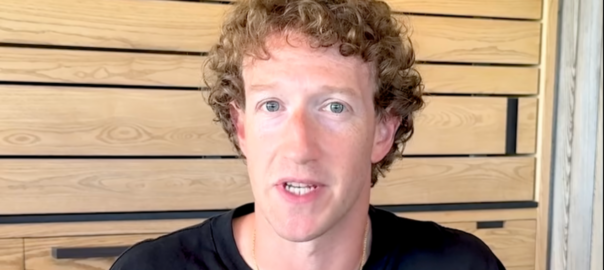On January 7 of this year, Mark Zuckerberg announced he’s getting rid of fact checkers at Meta, which owns Facebook, Instagram and WhatsApp, and is instead relying on “community notes, similar to X.”
A little background about me: I’ve long been off of Facebook. If you’re curious why, I may be posting on another blog about the grave harm that has come from Facebook’s algorithm of “engagement” over public safety, with the evidence starting in 2016. Facebook willfully ignored the systemic abuses taking place in Myanmar, which ultimately contributed to, the next year, the murder, rape and exile of the Rohingya Muslims living there.
A report filed by Amnesty International stated, “While the Myanmar military was committing crimes against humanity against the Rohingya, Meta was profiting from the echo chamber of hatred created by its hate-spiralling algorithms.”
As reported to the U.S. congress at the time, Steve Bannon took note. Through Cambridge Analytica, Bannon bought Facebook data in the U.K. under the pretense of “academic research” and used the data, and its platform and algorithm, to fan the flames of anger and fear, in the service of helping persuade voters that leaving the E.U. was a great idea.
I won’t go further here, but it’s no coincidence I’m posting this on the U.S. holiday of Presidents Day.
My Departure Timeline
So my leaving various platforms looked like this:
First, Facebook. As much as I enjoyed staying in touch with friends and family there, I downloaded all my data and closed up shop as a “product” of Facebook’s in 2020. (“Product?” you may ask … To paraphrase a common truism: If you use a “free” platform and you cannot find a product, you’re the product.)
Next was leaving Twitter, which used to be a wonderful resource for me professionally, and also a great way to keep in touch with distant friends. I even posted about what I had learned in my 15 years on Twitter here. But then Elon Musk purchased, dismantled and weaponized that platform. Leaving “X” was also painful, but I saw it degrade to what Kara Swisher not incorrectly calls a “Nazi porn bar.”
I still remained a “product” of Instagram and WhatsApp, however. Until Zuckerberg’s announcement. He reassured the public and investors at that time that he was removing content moderation to reduce mistakes, as in:
“The filters make mistakes, and they take down a lot of content that they shouldn’t. So, by dialing them back, we’re going to dramatically reduce the amount of censorship on our platforms. We’re also going to tune our content filters to require much higher confidence before taking down content. The reality is that this is a trade-off. It means we’re going to catch less bad stuff, but we’ll also reduce the number of innocent people’s posts and accounts that we accidentally take down.”
Fighting “censorship.” This move loosens restrictions on hate speech against LGBTQ+ and immigrants. Myanmar much, Zuck? As if another reason was needed, a couple of weeks later, Meta paid out $25 million to settle a lawsuit with our current president, one that Meta and its investors would have won. It was over Meta kicking him off of the platforms for clear violations of the content moderation terms of service in place at the time. The lawsuit accused Meta of “impermissible censorship.” There’s that C-word again. It’s an obvious capitulation to a mob shakedown.
So, farewell to Instagram. And WhatsApp.
Designed for Safety
A social media platform can be designed to keep marginalized groups safe, and discourse both productive and supportive. It really can. If you don’t believe me, join me on Bluesky. There are over 31 million users on the platform. It continues to grow. I hope you become one of those new users, and connect with me there.
Happy Presidents Day.
